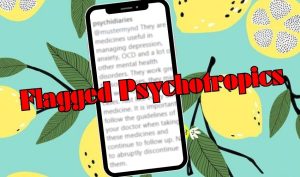Won’t it sound bizarre to think of kindness as an octopus given kindness is kind and an octopus can attack badly? This is the permission of language and this is how poetry helps. You might strongly feel that sometimes empathy can strangulate our own well-being. And yet, you can’t express how is it possible to the world that thinks of empathy, kindly, and kindness with a lot of empathy. Poetry is your passage to let loose of yourself in a safe space that guarantees emotional rest through creative expression that poetry allows. In Psychotherapy, poetry indeed plays a great role.
So, I introduced a new YouTube Playlist on poetry. Check out the channel here.
The old homeless woman on the street isn’t these days
The man who laughed with crowfeet wrinkles is also absent
The streets are getting far too clean with the monsoon rains
swiping up all the heaviness into my broken heart.
Kindness, you see, is an octopus trapping me with all its tentacles
But this is also life you see, to bear the sorrow of the unseen.
KINDNESS IS AN OCTOPUS, Linda Ashok, July 31, 2023.
I personally believe that poetry helps us unearth our most complex emotions. It enriches our language, it enriches our conversations, and critical expressions of thoughts and ideas otherwise difficult to articulate. In psychotherapy, there is the popular application of art as a therapy, but seldom I have come across poetry. I wonder why poetry has never been leveraged the way Anne Sexton leveraged it at the age of 40 when she was advised by her mental health doctor to write to fight depression.
Talking about Anne Sexton, her story goes like this. Anne Sexton was an American poet known for writing strong confessional poetry in the league of Sylvia Plath. Sexton had problems with her mental health, like depression, her whole life. Dr. Martin Theodore Orne, a professor of psychiatry and psychology at the University of Pennsylvania, was her doctor who suggested she took to writing as a way to deal with her depression.
Later in the late 1950s, Sexton started going to John Holmes’s poem workshops. There, she got help and support for her writing. Sexton wrote about her deepest thoughts and feelings. She wrote about her battles with mental illness, her relationships, and her own life. This process of expressing herself and finding out more about herself became a big part of her treatment and healing. Sexton used writing as a way to face her fears, work through her feelings, and learn more about her own mind.
Anne Sexton‘s poems got a lot of attention, and in 1967, her book “Live or Die” won the Pulitzer Prize for poems. Think of it how a woman’s trial with a doctor led her to write poetry so sharp and insightful to enrich literature that she won the coveted Pulitzer. At this point, I am thinking of my interaction with my first psychiatrist who I admitted myself to seeking help to get sleep but also not be devoid of dreams to not be able to write poetry. What a dilemma, isn’t it? Anyway, must you know that as of August 1, 2023, all I want is good sleep. I don’t fancy dreams. I can quarry my waking hours for metaphors but not be a miner of my own sleep.
Moving on, did you miss out on my latest book “Sharpless 29?” If you are interested in Quantum Physics much like Oppenheimer, much like him, if you see the Quantum field as our everyday habitat, you would like to have a copy of my book. It is available on Amazon and BookWryter.com. Sharpless 29 would give you a peek into what I mean by exercising poetry in psychotherapy. How language is the scalpel to scrape out your troubles and deepest unregarded emotions you gather over time.
As I mentioned earlier, I introduced a new YouTube Playlist on poetry. Check out the channel here. These poems will give you a glimpse of the finer world of language, life, and semantics.
These days the nights have shortened
to the breath of your memories.I wake up early, rub the sun on my belly,
and set out to the call of the jungle.Here, the mountains speak my language.
The fountains are a polyglot.The trees don’t mince their thoughts
and speak like no one is listening.The last time a psychiatrist asked me if I’m
married just to find if I’m having enough sex.I think I can now answer him.
I am making out every daywith my beautiful mountain life.
TEH NIGHTS HAVE SHORTENED TO THE BREATH OF YOUR MEMORIES, Linda Ashok. July 31, 2023.




